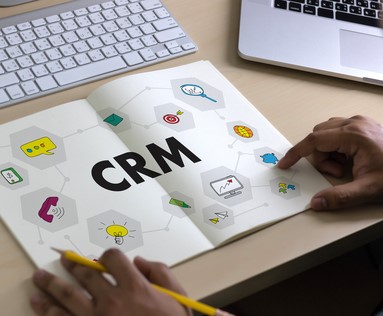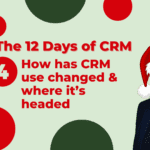CRM Success Steps and Strategies

Yes, you read that title right. The words ‘CRM’ and ‘success’ were just used together. That’s because whether you are rolling out a new CRM system for the first time at your firm or trying to enhance adoption of an existing system, success is possible!
But that doesn’t mean CRM success is simple. You can’t just install the system and expect clients to line up at the office door with bags of money. In fact, compared to other technology implementations, CRM can actually require extra effort because (ideally) the attorneys actually use the system. Also, even though the ultimate goal of CRM is to make things easier, some initial work is required. All this makes having a strategy even more important. On the road to developing your strategy, it can be helpful to follow a few steps that have helped other firms achieve CRM success.
Analyze Needs and Set Expectations
Research tells us that, too often, CRM implementations fail to meet expectations. What they don’t often tell us is that too often this is because those expectations were wrong. Before buying CRM (or any other) technology, make sure to set proper expectations for success. The best way to do this is with a CRM success assessment. Take the time up front to interview key stakeholders and get their input about how the CRM could help them. These should not be conversations about features and functions. This should be a dialogue that explores ways in which the technology may be able to help the firm and individual attorneys with things they care about like solving problems, improving processes, reducing costs and developing business.
Involve Key Stakeholders
CRM is often more about people and process than technology, so success starts with your users. Involve them early and often. Special attention should be paid to the assistants because often they are expected to do a lot of the ‘heavy lifting’ in terms of contact entry and maintenance. If you want their participation, make them feel like part of the process. To get the attorneys to buy in, find ways to make their lives easier. Additionally, CRM won’t succeed without another key group: firm leadership. Their conspicuous, consistent support is required to prevent CRM from be perceived as optional when the real goal is to make CRM usage habitual.
Vet Systems and Vendors
Only once you have clearly articulated needs and agreed upon goals, you can begin identifying potential systems to address them. Properly deployed and supported, CRM systems are invaluable because they can do so many things. Even the most basic implementation can provide a centralized repository of clean and complete contacts that can be easily updated firm-wide. They can also assist with core marketing activities such as e-mail campaigns, event management, relationship intelligence, activity tracking and categorization and segmentation of key contacts.
The real challenge is that CRM should probably only do a few things initially – and those things are often different for each firm, office, practice – or even individual attorneys. This means CRM selection must be strategic. During CRM demonstrations, don’t be sidetracked by ‘bells and whistles.’ Instead, to prevent losing focus, it can be helpful to create a roadmap in advance of demos to thoroughly assess the relevant functionality. Have the providers dig into the features you really need.
Be sure to also spend time on critical details including privacy and security, how data changes are handled and how the system is hosted. While many corporations have embraced the reality that external hosting may actually be the most secure, at law firms allowing sensitive Client data to float beyond the firm’s firewall into “the Cloud” requires significant discussions.
Once you have narrowed the potential products, it is absolutely essential to check references for providers. The ideal relationship with a CRM provider will be ongoing and, as with any long-term commitment, it’s important to know what you are getting into. Find out how many implementations the company has and how successful they are. Ask about their experience in working with law firms, their training and implementation resources, their documentation, processes and best practices and, most importantly, their dedication to customer service.
When following up with references, prepare questions in advance. Here are a few reference checking questions that may be helpful. Also be sure to reach out other legal marketers for more candid opinions. I still remember a reference checking call where a marketer broke down in tears over a failed 2-year implementation. No one wants to end up in that situation. Ask the right questions to make a smart selection.
Roll Out Gradually
Once you have selected your system, you can begin planning for the rollout. Don’t make the mistake of attempting a “boil the ocean” implementation, deploying too many features to too many people in too big a hurry. Firm-wide rollouts are usually a bad idea because without taking the time to properly test the system, any problems or missteps you run into can be amplified exponentially.
Instead, begin with a pilot group of attorneys and assistants who have an interest in participating, are invested in system success and have time to provide the critical feedback that is needed to improve the rollout for the rest of the firm. Most importantly, roll out the system to address the needs and challenges identified during the assessment. Each group should be exposed to the features of the system that can best address their unique needs. Follow the same plan when moving forward with the broader rollout: deploy in groups that share common goals or objectives and match features to their needs.
Communicate Effectively
As with any type of technology implementation, ongoing communication and training will be imperative. End users need to understand the reasons for CRM and, most importantly, what’s in it for them. Create benefit statements for key groups. Provide relevant information and answer questions. Get firm leaders to sign off on key communications to demonstrate support. Most importantly, when good things happen, share successes.
Additionally, as marketers, we all know that a bit of branding can make anything (even CRM) more appealing. Come up with a theme for the rollout – and don’t be afraid to have some fun. Yes, I also just used the words “fun” and “CRM” in the same sentence. Create campaigns and contests and give away prizes to drive participation.
Train Continuously
Finally, even if you get everything else right, CRM won’t succeed without effective training. It’s important to develop training plans and materials targeted to the needs of key groups. Assistants should attend classes customized to their work routines, while training for attorneys should focus on business processes, not buttons to push. To really enhance attorney engagement, training should take place in their offices and should take no more than 30 minutes. This training is often most effective when it’s done by someone who can communicate CRM benefits, which is why many firms have Marketing lead the attorney training. Also, because CRM is ongoing, training doesn’t end after the rollout. Be sure to create continuing education for new hires and laterals. Finally, to get people to attend training, don’t forget one of the biggest keys to CRM success in a law firm: food!
Dedicate Required Resources
Too often, firms are willing to spend money on a system but don’t budget for other essential resources. More important than the investment in the technology can be the time and human resources required for success. Dedicated CRM staffing is not only necessary, it is essential.
For all firms, a CRM project manager will be beneficial during the rollout. Larger firms may also need a dedicated full- or part-time CRM manager for ongoing success. Data quality resources are also imperative, especially during the rollout when shared attorneys’ contacts flow into the system creating a significant number of duplicates. Additionally, an estimated 30% of contact data becomes outdated each year as people move, change jobs, get married and have other status changes. This means ongoing data quality support will be required because if attorneys don’t trust the data, they won’t trust the system.
Repeat
CRM isn’t a project or an implementation. It’s a fundamental change – and improvement – in how your firm manages its most important assets – its relationships. As a result, CRM deployments shouldn’t end – they should evolve. There will always be new problems to solve and new business to bring in. So be sure to plan for the future and continually explore features, upgrades and integrations.
Don’t Do It Alone
If this all sounds a bit overwhelming, don’t worry. Few people have the extensive experience to successfully deploy a CRM system by themselves. Still fewer are excited about expending the effort to get this experience. Fortunately, you don’t have to do it alone. You can reach out to CRM providers for assistance, engage experienced consultants or, even better, ask for advice from LMA colleagues. The willingness to share knowledge is what makes the LMA community such a valuable resource.
Download the PDF
For more than a decade, the team at CLIENTSFirst Consulting has been helping professional services firms and other organizations successfully select and implement CRM and eMarketing systems to maximize value, adoption and return on investment. If you need help achieving CRM Success, please contact us at 404-249-9914 or Info@ClientsFirstConsulting.com.







